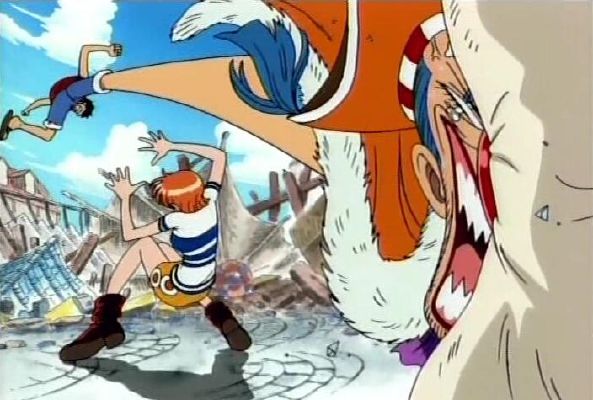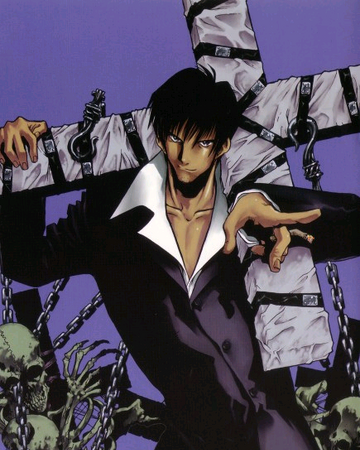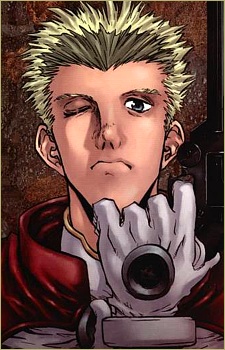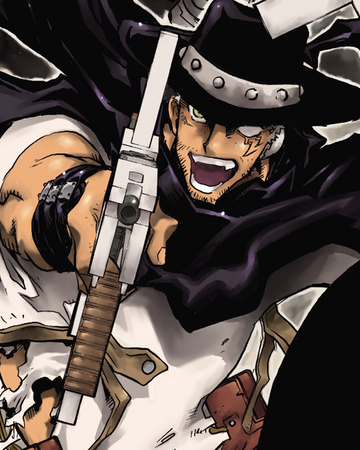Introduction:
This year is the year I finally
decided to start reading Eichiro Oda’s One Piece after years upon years
of putting it off. I knew it was good, but the art never really drew me in and
the character designs were a little wacky and, like most people, the length was
a little daunting, to say the least. The whole series is going to wrap up around
a cool one hundred and twenty volumes if Oda is to be believed. No small feat
of both artistry and reading effort.
I finally got the push to start it
from a close friend of mine wanting to start a podcast where we watch shitty
battle shonen movies. Which meant a manga readlist that was already miles long
without One Piece. Which meant that I would have to catch up to One Piece to
some degree. That’s when I found out that One Piece, like a lot of shonen, is
split up incredibly cleanly between its larger story “sagas.” One Piece’s average
out to around 9 volumes a saga. So a plan formulated in my head.
See, I knew that One Piece would end up being special to me. I made the decision to pace myself. My plan for One Piece became this: I was going to buy the entire series physically, in omnibus format, saga by saga. I would then read each saga as a break between other manga. So, when I finished reading Part 1 of Naruto (pre-timeskip) I put Naruto down and picked up the first One Piece omnibus. I was immediately hooked.
I should preface that, at the time
of me writing this, I’m actually only 15% through the series or so. I just started
volume 16, in the middle of the Drum Island arc, part of the Baroque
Works/Alabasta saga, the second story arc. Most of my opinions on One Piece as
of now are mostly gut feelings, ones I got whilst reading the first story saga,
East Blue.
Gushing:
So Yeah. One Piece is a battle shonen. It has a power system, people fight, there are speeches about friendship, and the bad guys get beaten by the good guys because of said friendship to some degree. It is also incredible. What starts out as a goofy, almost Osamu Tezuka-esque pirate manga very quickly and very subtly shows its hand as infinitely more than that as early as the second arc, Orange Town, and very unsubtly shows its hand in the next arc, Syrup Village.
See, One Piece is about this guy, Monkey D Luffy, an incredibly stupid pirate. He goes around on adventures with his crew, the Straw Hat Pirates. The only thing is, Luffy has no crew at the start. It’s just him and a dinghy versus the world. He has the goal of becoming the “king of the pirates.” You all know that from the 4kids rap. Pretty by-the-numbers shit for a battle shonen. The hard-headed, devil-may-care good boy who wants to be the president of the pirate-wizard-ninjas goes around making friends and beating the bad guys.
What sets One Piece apart is that it feels like the culmination, even at the beginning, of one person’s life’s work. See, Eichiro Oda didn’t just make One Piece his life when he signed that Weekly Shonen Jump contract in 1997. One Piece has been part of his life since he was young. And boy it fucking feels like it. He has lived and breathed manga since he was a kid, both reading and drawing it.
One Piece’s world is, to use an annoyingly obvious world, alive. It is textured and real feeling. The entire planet is mapped out with its own ecosystems and hemispheres. Every town feels alive and unique, every island breathes not just life but creativity. Oda has created a world that is equal parts “a believable place where people are born and where they live and die” and “an adventurer’s paradise, where danger lurks around every corner as long as you seek it out.” And it’s all in the brass tacks. Oda has put clear thought into grounding the whimsical, magical feeling of the world. “Yeah there’s an island of dinosaurs, but here’s how the island of dinosaurs came to be, with thought put into how the ecosystem would have developed and how it fits into the larger puzzle of the world and how it came to be during the time that One Piece takes place.”
This texture and whimsicality is extended to the characters as well. Take Buggy the Clown. Buggy the Clown is a man who was born with a large red nose. He is sensitive about this large red nose. If you mention it, get gets pissed off. It also just so happens that he decided to theme his entire pirate crew around the circus, with him as its ringleader. There’s lion tamers, acrobats, and his pirate flag has Buggy’s large red nose on it. It’s fucking hysterical, yes, but it’s also grounded in the world.
yes, this guy:
Wait, Metaphor??:
See, pirates in One Piece are more than just “pirates” in the textual sense, but they also represent, in a metaphorical sense, the concept of “freedom itself.” To be a pirate, to express yourself and to be who you truly are, is freedom. If you are a pirate, you are unequivocally free in the truest sense of the world. But it doesn’t just say that all freedom is good. There is “freedom to” and “freedom from.”
A character like Luffy, who runs around beating the bad guy, represents this kind of “freedom from.” Freedom from the chains of society, its expectations, the oppression of an abusive government like the one that holds his first real crewmate, Zoro, in its clutches, etc. To Luffy, hell, to be “king of the pirates”, is to be defined by your “freedom from.”
However, look at Buggy. Buggy is free, yes. But his freedom is twisted. He uses his freedom from authority to become authority. He has become someone who takes people’s “freedom from.” He is exerting his “freedom to” do whatever he wishes, and he is using his “freedom to” hurt people. This is where Luffy steps in.
Like, all battle shonen are about, on multiple textual levels, clashes of ideology. Bleach is full of it, Naruto is full of it, but most of all, One Piece is full of it. Luffy, the ultimate avatar of “freedom from,” goes around tearing down systems of oppression. He shows the world that they can overthrow their masters and live their dreams if they only take that scary first step towards true freedom. All while he himself reaches towards the freest freedom of all.
Back to the Characters:
To wrap back around to the characters, there is also care in how they affect the world. See, Luffy has this idol, Red Haired Shanks. Luffy grew up in a town that Shanks called home for a few years and it is in Luffy’s relationship with Shanks that Luffy’s wish to become a pirate formed. This is emboldened when Shanks saves the village from bandits, and Luffy from a sea monster, sacrificing his left arm for Luffy’s life. For Luffy, to be a pirate is to be like Shanks. To fight the forces that would make you cower in fear.
But Shanks isn’t just a figure in Luffy’s life. One Piece isn’t that kind of story. See, Buggy the Clown grew up with Shanks. They shared a pirate crew and grew apart because of how Buggy feels Shanks betrayed him. One of Luffy’s crewmates, Usopp, his dad is a part of Shanks’ crew, and you can see Usopp’s dad in chapter one hanging out with Shanks. Stuff like that is ALL OVER One Piece.
And when Luffy is out of someone’s
life, let’s use Buggy as an example, their story doesn’t end. People’s lives
aren’t defined by one person’s presence. The world moves on without you. And so
Oda periodically checks in on characters who aren’t around for the Straw Hats’
adventures at that moment, but who still have things going on. You get to watch
Buggy recover from his encounter with Luffy, you get to watch Luffy’s friend Koby
the Cabin boy training to be a navy officer, you get to watch Usopp’s friend
Kaya train to be a nurse. And these events, these glimpses into places that the
story isn’t at, are important. Buggy comes back. A Lot.
Outro:
And that’s what makes One Piece
special. It’s a goofy, plucky manga about a goofy, plucky pirate going around
fighting the bad guy, yeah, but to just sell it as that would be to do it a
disservice. One Piece is also a complicated, textured work. One where a dense
web of connected characters is overlaid on a world that is living and breathing,
each island a character in its own right. It's a journey I find myself wanting to just devour wholesale. But it's one I'm deliberately pacing myself on. I'm also not going to read it weekly. My plan is to catch up to the beginning of Wano Country, the current arc, and wait until it ends. And then I will binge Wano, and wait once more.
So yeah. One Piece is a manga that, to me, feels like a healing salve for the soul. I find myself, even this early in, thinking constantly about the Straw Hats. About how I want my journey with them to last forever. See, the length of One Piece is a turnoff for some, and rightfully so, but if you let yourself get absorbed, you might end up like me. Someone wishing to spend the rest of his life going on periodic adventures with the straw hats. I cannot wait to follow the Straw Hats through their lives, to see Luffy become King of the Pirates, but I find myself secretly wishing that it'll never end. All of this, and I'm not even a quarter of the way through the manga as it is today. So yeah, like Nami says, my cares do just melt away on a ship like Luffy's.


